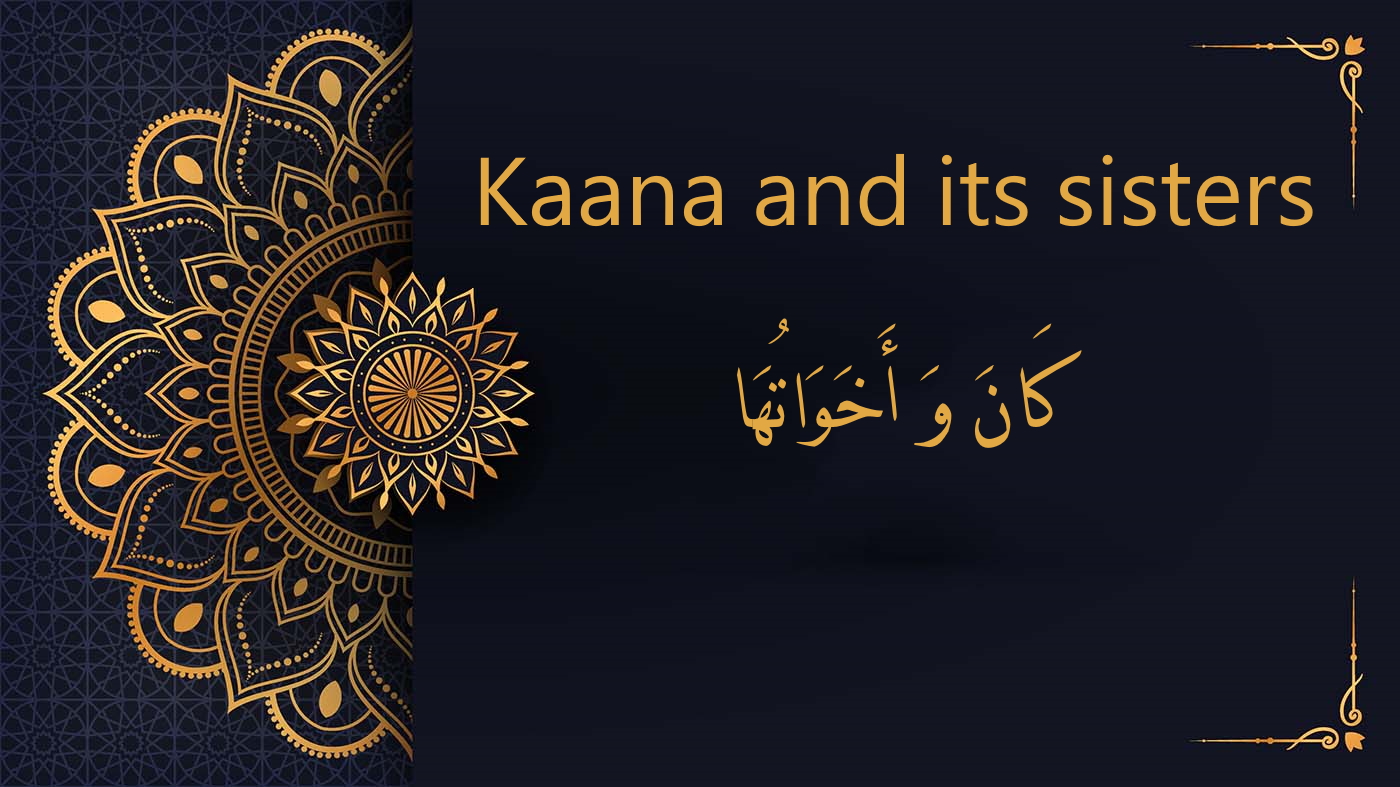Kaana and its sisters – كَانَ وَ أَخَوَاتُهَا | Arabic Free Course

Kaana and its sisters in Arabic - كَانَ وَ أَخَوَاتُهَا
Introduction
The group of particles known as “Kaana and its Sisters” – كَانَ وَ أَخَوَاتُهَا:
1. **كَانَ (kaana)** – “to was”
2. **صَارَ (ṣāra)** – “to become”
3. **أَصْبَحَ (aṣbaḥa)** – “to become,” “to enter/do in the morning”
4. **مَا زَالَ (mā zāla)** – “increasingly,” “continuously”
5. **أَضْحَى (aḍḥā)** – “to enter the dawn”
6. **لَيْسَ (laysa)** – “not”
7. **بَاتَ (bāta)** – “to become,” “to pass the night”
8. **أَمْسَ (amsa)** – “to become,” “to enter,” “to do in the evening”
9. **مَا دَامَ (mā dāma)** – “forever,” “continuously”
10. **ظَلَّ (ẓalla)** – “remain,” “to be,” “continue”
These particles, including كَانَ (kaana), and its related terms, play a crucial role in the Arabic language and are frequently used in the Holy Quran to indicate various aspects of time, states, and actions. They contribute to the richness and depth of meaning in the Quranic text.
1. The rule of Kaana and its sisters
These verbs typically assign a dammah (ُ) to their nouns and a fatha (َ) to their predicates. This grammatical pattern helps convey the structure and meaning of sentences in Arabic.
2. Illustrative Usage of Kaana and its Sister Verbs in the Holy Quran
مَا كَانَ إِبْرَاهِيمُ يَهُودِيًّا وَلَا نَصْرَانِيًّا
Abraham was neither a Jew nor a Christian (3:67)
وَأَصْبَحَ فُؤَادُ أُمِّ مُوسَىٰ فَارِغًا
And the heart of Moses’ mother became empty [of all else]. (28:10)
وَإِذَا بُشِّرَ أَحَدُهُم بِالْأُنثَىٰ ظَلَّ وَجْهُهُ مُسْوَدًّا وَهُوَ كَظِيمٌ
And when one of them is informed of [the birth of] a female, his face becomes dark, and he suppresses grief. (16:58)
أَلَيْسَ اللَّـهُ بِأَحْكَمِ الْحَاكِمِينَ
Is not Allah the most just of judges? (95:8)
Conclusion
This lesson on Arabic nuances concludes here. Insha’Allah, our subsequent session will delve into the accusative case in Arabic.
Al-dirassa Institute invites you on a linguistic journey with our expert teachers to master the Arabic language. Should you wish to further your studies, we welcome your inquiries.
Chosen and Trusted by Thousands of Satisfied Learners
Discover the experiences of our delighted clients who have thoroughly enjoyed utilizing this standout feature.
Alhamdulillah I‘m very pleased with the arabic and Qur’an lessons I receive from teacher Umm Tasneem and I‘m also content with the al-dirassa administration team who were very quick in answering any questions I had. In a month I progressed a lot and I cannot wait to continue my studies with al-dirassa. May Allah reward everyone at al-dirassa.
Verified review - view original
My Qur’an teacher is fantastic, she teaches me in a loving and kind way where I look forward to the lessons and learn so much. My Arabic teacher is equally as nice and has a lot of patience with me, she has great expertise in the field and I’ve progressed really quickly with her. Thank you Al-dirassa!
Verified review - view original
Book your free trial lesson
Don’t want to go through the translation anymore?
30 free minutes with your qualified Egyptian teacher.




